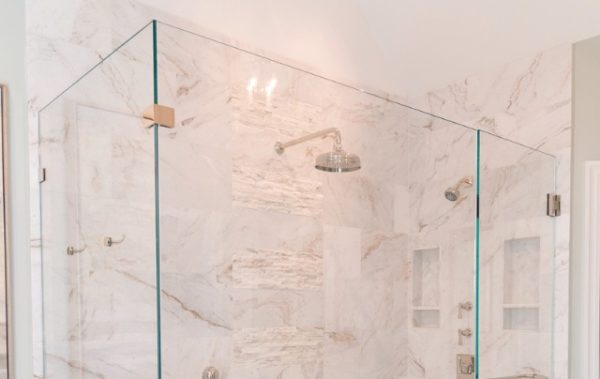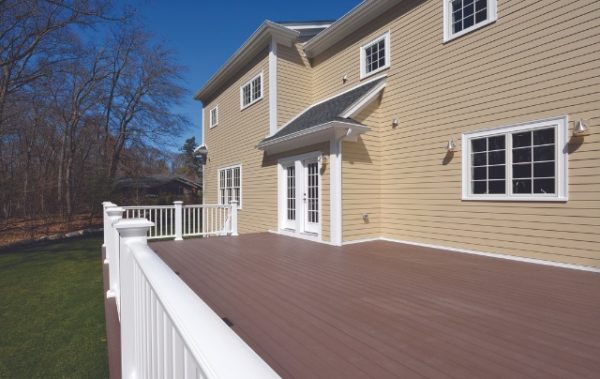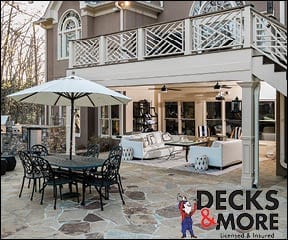Howard’s Habitat

|
|
Ten years ago, Clark Howard never dreamed hed be doing what hes doing now. Its not the success of his consumer-advice radio show, books and TV appearances that surprises himits the recent construction of two houses.
From March 5 to April 3, Howard helped build his 17th and 18th houses for Habitat for Humanity, a cause he is passionate about now, although he says he didnt know the first thing about it a decade ago. He learned about the group after delivering a money-management speech to an audience of Habitat homeowners. I didn’t really know who they were or what they were aboutand when I was done I said, So, what exactly is this? Howard recalls. As the audience members explained the concept behind Habitat for Humanity, Howard says their excitement and pride at being homeowners inspired him. I was just caught up with the enthusiasm, he says.
|
Answers about Clark Howards How are the families chosen? First, each family must show a They must have lived in the city of Atlanta for one year and must show a steady income for at least two years. They must have good credit and no prior home foreclosures, or chapter 7 or 13 history, repossessions or past-due balances. Families chosen must: Complete 150 hours of sweat equity on other Habitat homes or on their own Attend nearly a dozen homeowner-education workshops and hands-on maintenance seminars Perform ongoing maintenance to the home Make all monthly payments on time The average cost for an Atlanta Habitat home is $74,000. Between $10,000 and $15,000 is saved in labor cost on each home because of the dozens of volunteers. How do I donate to Clark’s homes? Each affiliate and Habitat for Humanity International organization operates independently. So, to make sure your money is going directly to Clark’s homes, Atlanta Habitat for Humanity Do Habitat families have a mortgage? Yes. Families will hold a 25-year mortgage with no interest with payments ranging from $325 to How is the location chosen? The Habitat program looks for available space where more than one Habitat home can be built Source: www.clarkhoward.com |
Building excitement
In 1996, after a couple of years of fund-raising, Howard started his own project with Habitat for Humanityone that has involved listeners from 15 states pitching in. He broadcasts nationally from two build sites each year. The listeners just love it, he says. They look forward to it every year. Howard donates his speaking fees to the project, and if more money is needed, he and his wife, Lane, make up the difference.
Having the ability with the radio to recruit listeners to come help, and being in a position where I felt I could afford to help by sponsoring, it’s been just a major project for me, Howard says. It’s just so clear what a difference you see in somebody’s life when they become a homeowner for the first time. When somebody owns their own home, there’s a stability that comes with that and a pride that’s so different than somebody who’s a renter. [Theres a] night-and-day change.
Pride, planning and protection
|
|
If Howard had his way, the pride and sense of stability new Habitat homeowners feel would motivate every homeowner to put money faithfully each month into a home maintenance and improvement fund. People who live in condominiums are used to this because they’re forced to pay moneya condominium feeevery month. But homeowners don’t have somebody who’s standing over them saying, You will invest money in the future of your home.’ Especially for first-time homeowners, I want them to set that money aside so if something does go wrong, they’re not sitting there wondering How am I going to pay for a new furnace?’ or What am I going to do about the roof?’
Rather than spending extra money on their house right after moving in, Howard says new homeowners should focus on long-term expenses. The first six months, people go crazy buying everything in sight for that homeyou don’t have to! Give it some time, he says. It worries me how much financial trouble people can get into by trying to do everything at once.
The real return
But when you are ready to dip into that home-improvement fund, where should you put the money first? The historical stats are always consistent on this: There are two parts of a house that you’re going to get payback from, and that’s kitchens and bathrooms, Howard says. But getting a financial return on your investment should not be your primary reason for renovating, he cautions.
The payoff that you should be worried about is that its something you’re going to enjoy. The reason to do an improvement to a home always is because it’s something you want.
Howard also warns those planning to start remodeling: If youre less than flexible, you may want to consider moving. If you’re someone who looks for perfection in life, don’t ever do a home improvement or renovation, Howard warns. You have to be somebody who can go with flow and roll with punches, because home improvement and renovation is something where there’s always unexpected events and unintended consequences. If you’re someone who expects everything to line up right in line like soldiers marching, it doesn’t work that way and you’re going to be miserable. If you’re someone who expects perfection, go buy another house that’s already perfect, instead of trying to make your own that way.
Practical knowledge
For those who are up for doing their own home improvements, Howard says volunteering with Habitat for Humanity is a great way to learn the tricks of the trade. The hands-on training you get on a build site can teach you everything you need to know for your own construction project.
|
|
Office-equipment company Lanier Worldwide has sent volunteers to Howards Habitat build sites for five years. Larry Long, senior quality-assurance engineer at the companys Tucker office, agrees that the project is a great crash course for those planning work on their own homes. Its a great experience because you learn about how a lot of this stuff goes together. Theres also a lot you can learn about maintaining your own home.
Lanier Worldwide and many other companies see Habitat for Humanity projects as a way to build more than housesthey are perfect team-building exercises, as well. Jim Corbin, owner of Corbin Comfort Systems in Clayton County, says volunteering with Howards Habitat project is a fun thing for our employees, and he jokes that they particularly enjoy seeing me run the gas pipe, which is a crummy job!
A lasting gift
Corbin is among several area business owners that donate their skills and materials to the project; Corbin donates the entire HVAC system for one of Howards Habitat houses each year. Corbin is one of 35 HVAC contractors and suppliers that work with the Metropolitan Atlanta Air Conditioning Contractors Association (MAACA) to install HVAC systems in the houses that Howards project builds. Corbin says its the spirit of helping those who help themselves that drew him to the cause. The people that receive a house have helped on someone elses house, he says.
|
|
Tony Fuld, owner of Total Security Alarms in Loganville, says it was the words of an overwhelmed little boy that made him want to remain a part of the project for years to come: I finally get my own bedroom! Fuld donates and installs security systems for Howards homes. Its a good feeling, Fuld says. They finally have something thats their own.
Other members of the local home-improvement community that donate their time and materials to the project include Tom Connolly, owner of Mr. Plumber, who provides plumbing, and Ken Morrow, owner of Sod Atlanta Inc., who donates the sod needed for the homes. Landscaping supplies are donated by Pike Family Nurseries and international company Alcan Cable supplies the electrical service entrance cable for the homes.
If theres any question about what motivates companies and volunteers to donate their supplies and labor year after year, single mothers Yashica Cluster and Janice Brown, who this month move into the south-Atlanta homes built by Howards team, have the answer.
“When I got to the [construction] warehouse, it really hit me. I started the crocodile tears rolling and I thought ‘We’re really [building] our house today.’ It’s overwhelming. I’m just overjoyed,” Cluster says. Brown agrees, “It feels great to own your own home.

Cupboard Curriculum

Home Rebuilders Celebrates 30 Years

Should I use clear glass, frosted or textured glass for my shower enclosure?
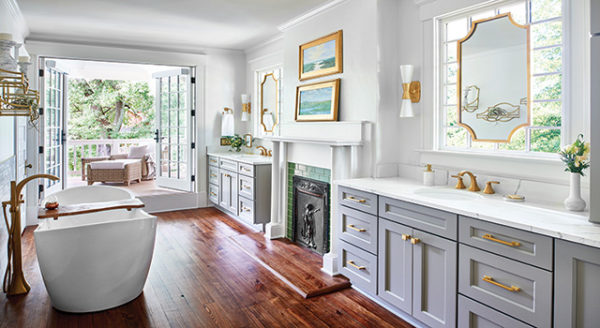
Award-Winning Kitchens, Baths, Interior Design and More
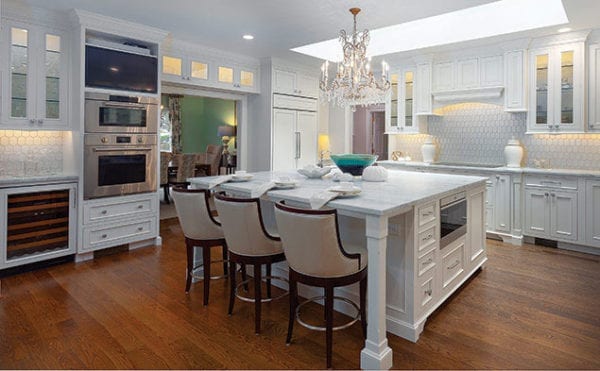
Atlanta’s NKBA Designs of Distinction 2019 Winners

100 Things to Know Before You Remodel
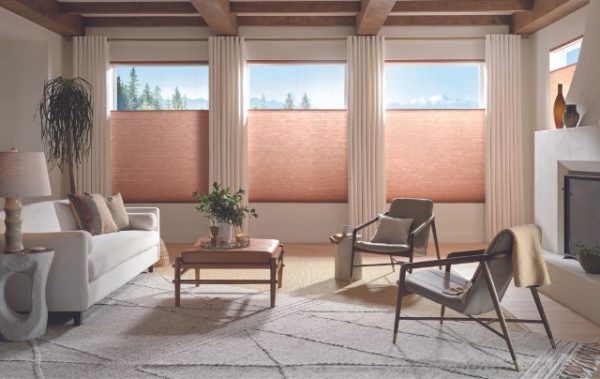
What’s the simplest way to upgrade your window treatments?
